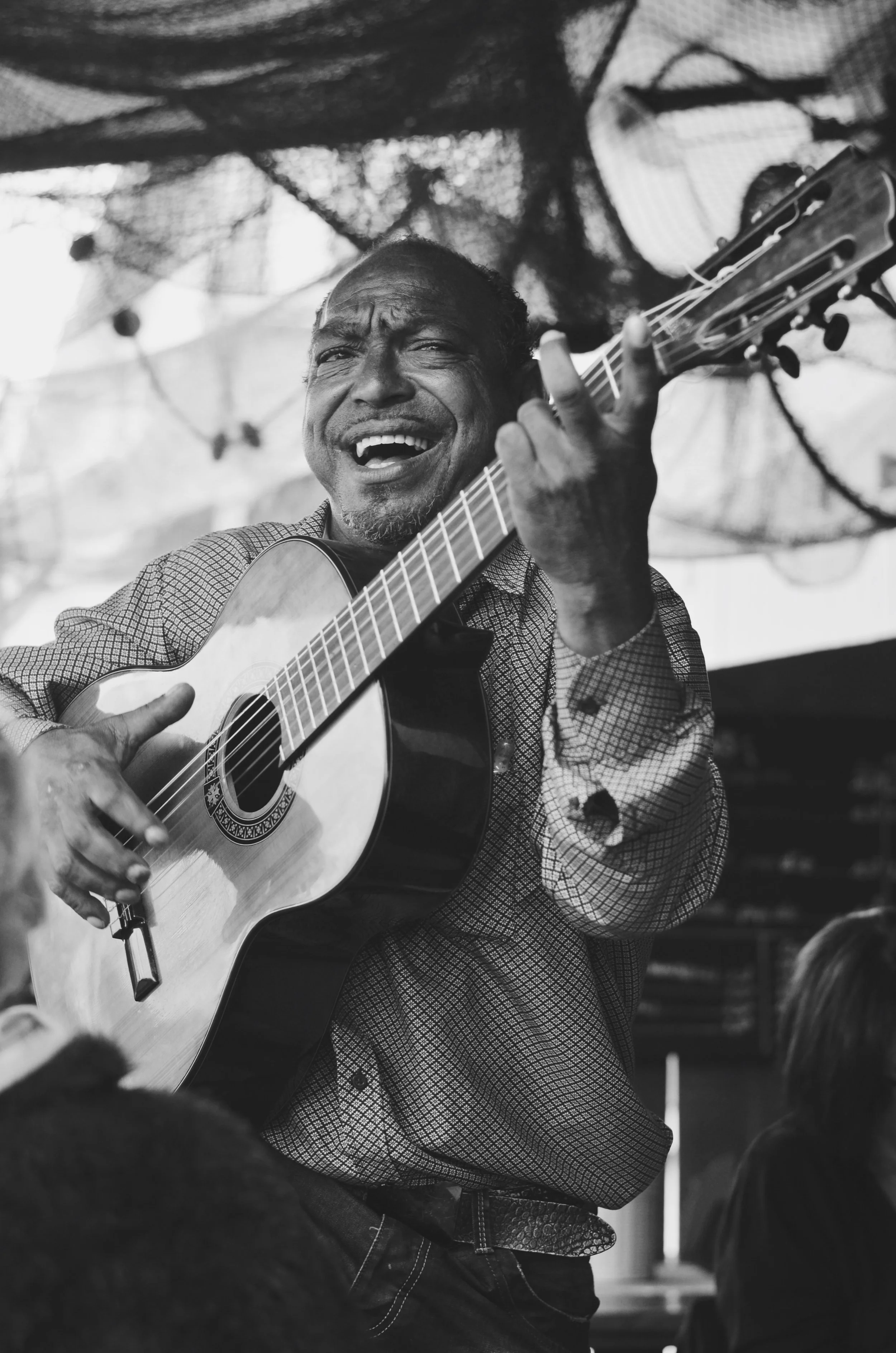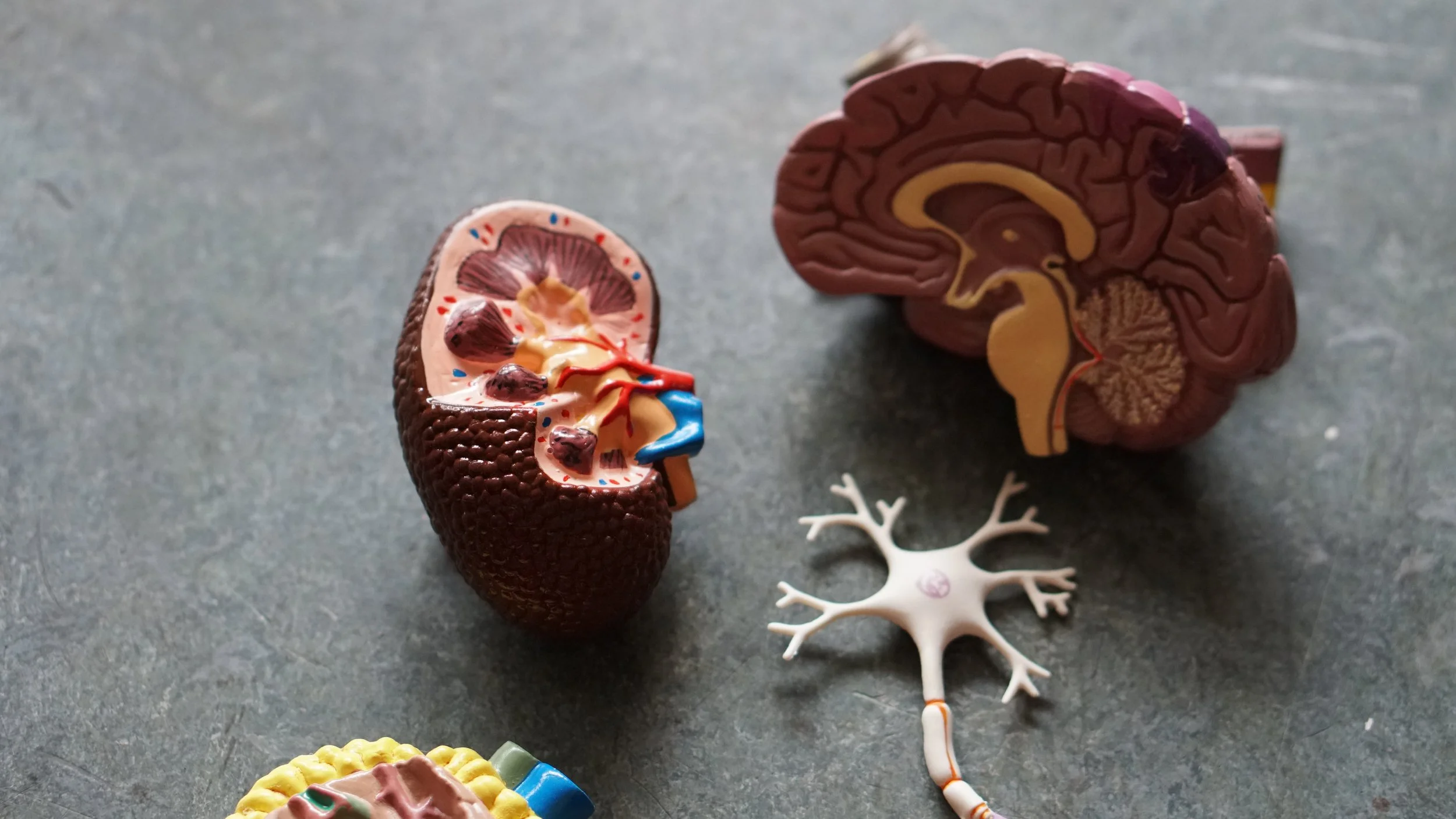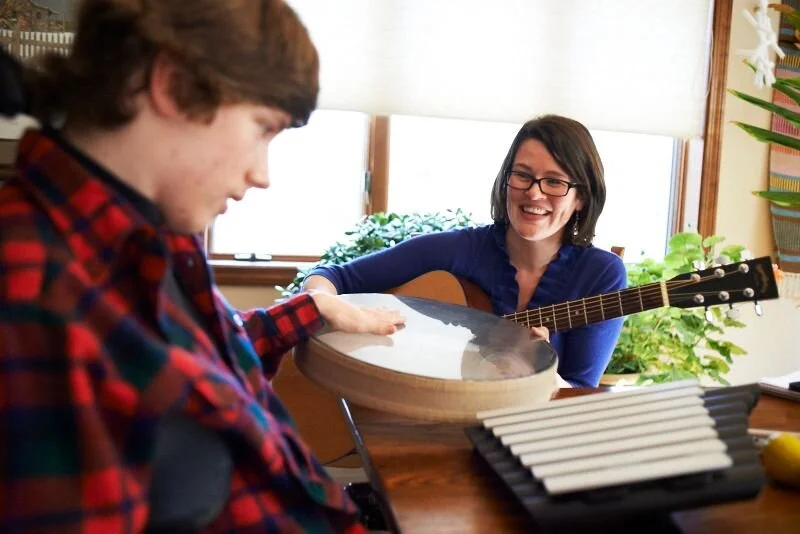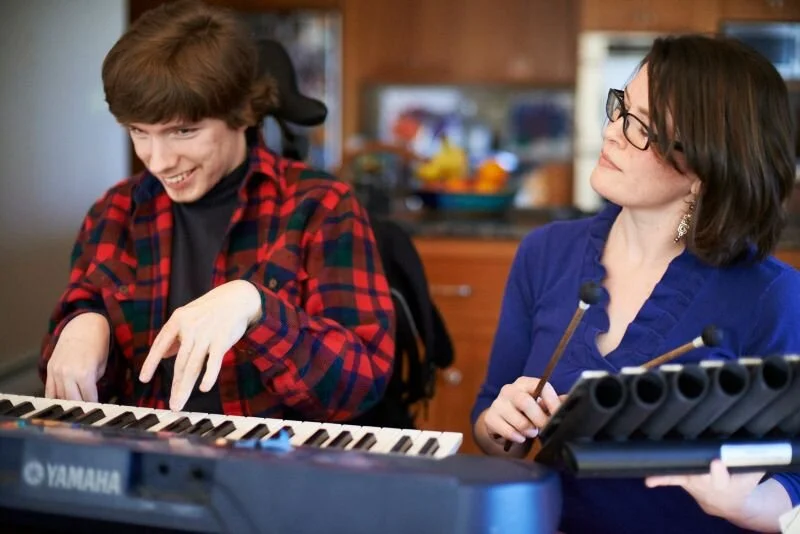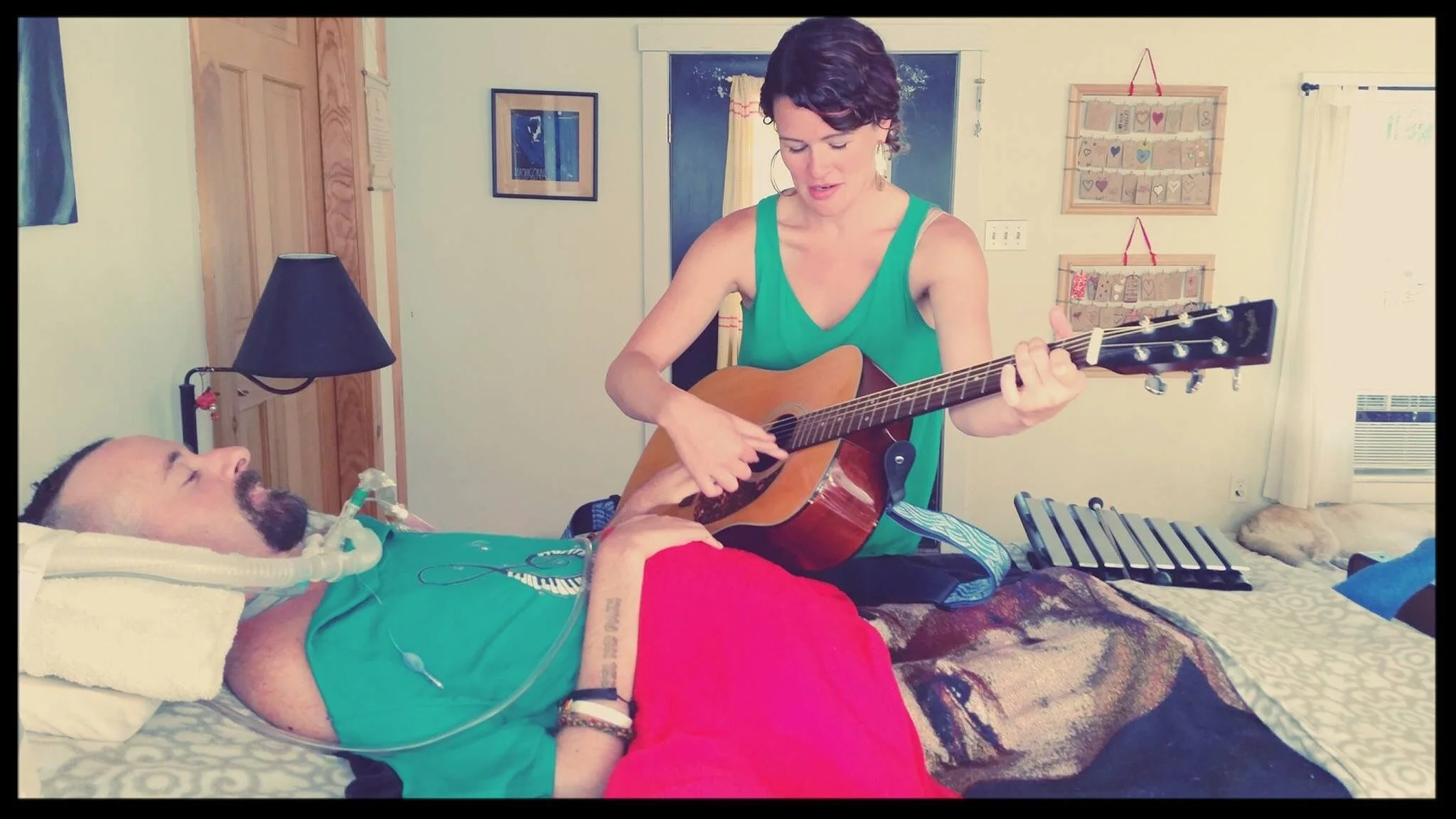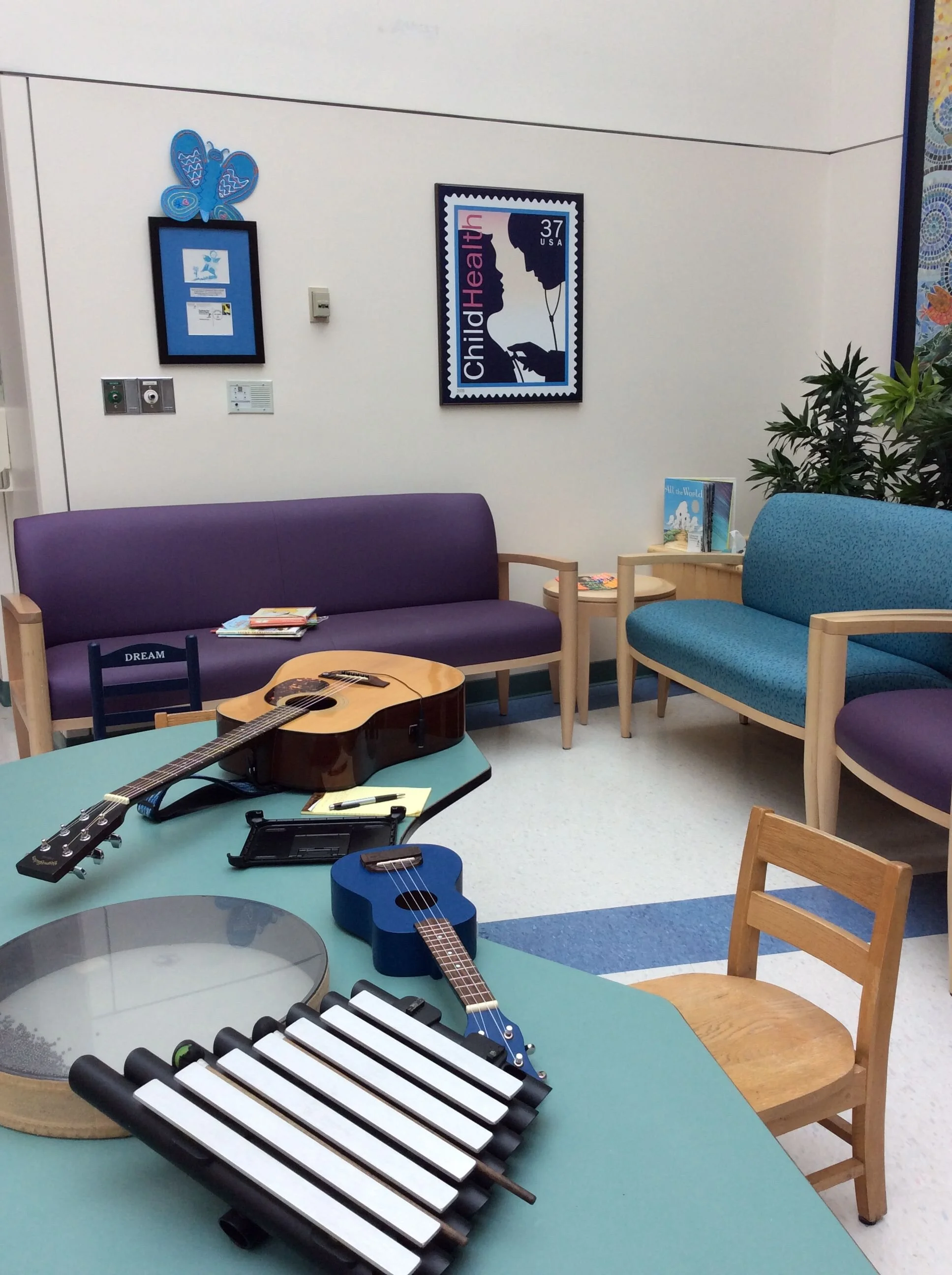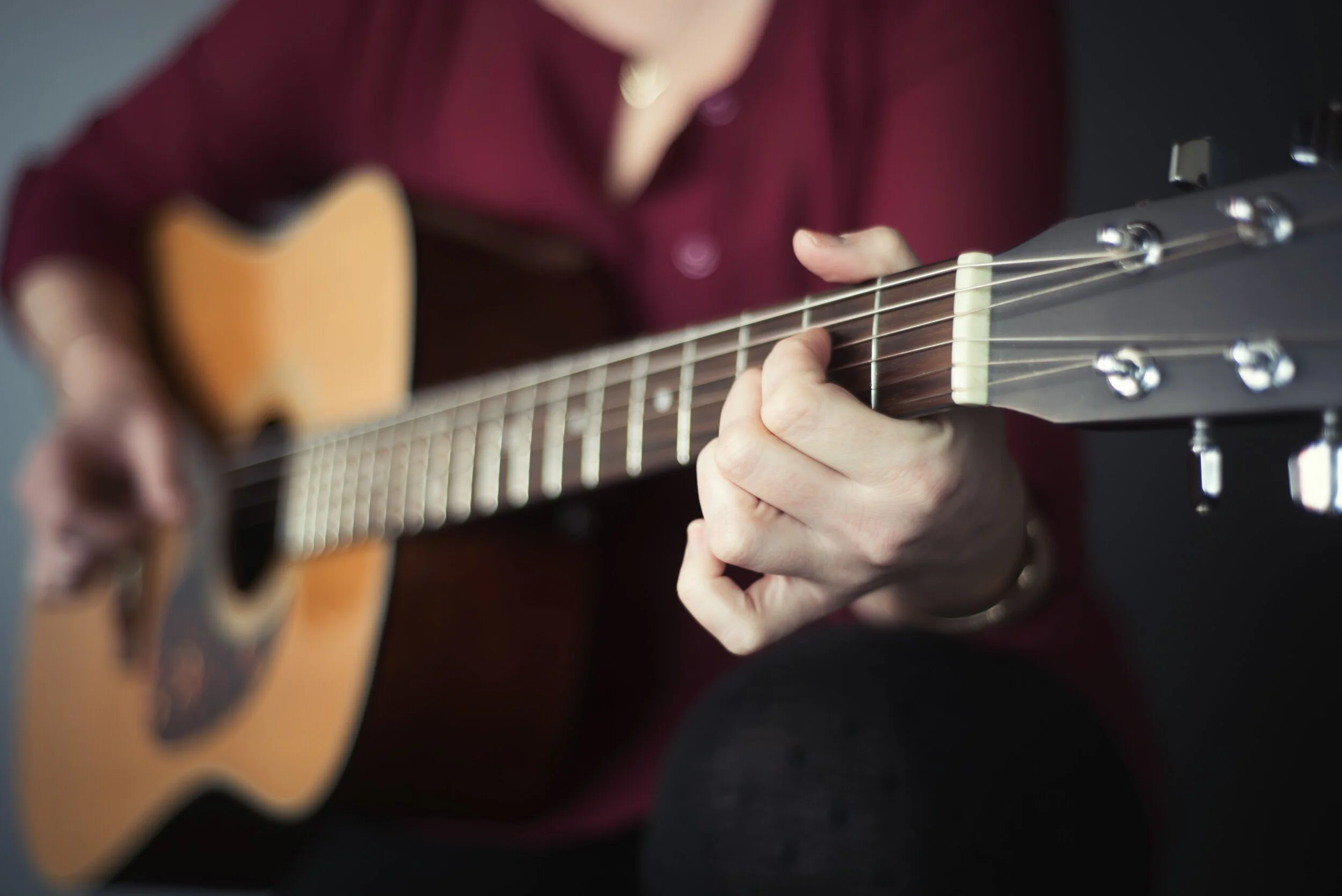I’ve always said that music doesn’t belong at the top of Maslow’s triangle- we can flip the triangle on it’s side and take care of the whole person. I’ve also said that I’d like to work myself out of a job- if we hadn’t spent decades cutting funding to arts education (and education in general), and if our culture could remove the “be famous or never sing” mindset, maybe we wouldn’t need arts therapies. But those things haven’t happened, and we do need arts therapies. We need to give people space to explore their creative side, to reconnect with their authentic voice, to find expression for what they may not have words. Music therapy should be there for people whether they’re dealing with illness or are just navigating a healthy life.
Read MoreWe help patients process the memories and emotions that are evoked when engaging in music, and then explore their reactions to these through verbal discussion. We can then work through music improvisation, lyric writing, or singing to make changes to our reactions in order to re-process difficult situations.
Music therapy can be an excellent modality to explore feelings and situations that are difficult to convey in words. There is no pressure to come into the therapy room and sing or play an instrument, the sessions often look like traditional therapy- with the added sensory experience of sound and the extra tool of learning to use music for self-care.
Read MoreIt’s my thought that organizations can make use of talented teaching artists, provided the teachers- and the organizations- have an understanding of the goals of the program, the participants’ needs, and what adaptive music means to all involved. Below, I’ll share some of the skills that are needed.
Read MoreThe Creative Health Conference is in its fourth year, and this year we’re focusing on music! Join us for a day of learning, inspiration, and connection. Teaching artists and medical professionals will share their work, research, and philosophies about music and healing. Gain ideas and resources for using music as a tool for health, with yourself or with your clients. Sessions include lecture and experiential formats. No prior musical experience necessary.
Read MoreHe usually had his eyes closed while the other members sang. One day, I brought drums to hand out- they were Remo’s buffalo drums, which have a handle and a mallet. This man was playing his drum with one mallet when he suddenly reached over and took the mallet from his neighbor. He started playing a military drum cadence with two mallets on the drum on his lap. When we finished the drumming as a group, I sat next to him and he told me about his service in the army. It was the first time he’d spoken in the group in two months!
Read MoreMusic therapists use a technique called entrainment, in which we match the tempo of our improvised music to the breath or heart rate of a patient. Eventually, we can speed up or slow down our music and the person’s body rhythms will go with it. This is effective even in the ICU with a patient who is otherwise unresponsive. If that patient is in a state of stress, music therapy can be used to bring them into a parasympathetic state, which may help them get home faster.
Read MoreMusic is highly structured, made up of multiple elements all at once- rhythm, tempo, melody, harmony, timbre, genre. So to participate in even listening to music, we are using parts of our brain that deal with complex perception, motor control, emotional regulation, timing, hearing, language, memory, executive control. Music activates these areas and drives complex interaction between them. Using the simple form of music, like a 12 bar blues, we can retrain and reeducate an injured brain by making space for the brain to fill in notes and rhythm. Research has shown that learning music helps areas in the brain grow and reconnect.
Read MorePercussion walls can target so many different goals and work on a variety of skills while being a fun gathering space for kids with and without disabilities to play together.
Read MoreI am truly humbled by the support I have had from so many different people and organizations who believe that music therapy has a place in Maine’s healthcare system. And to all the clients I have worked with over the years – you each have taught me so much and it has been an honor to be part of your journey.
Read MoreThese goals are addressed by using rhythm, melody and movement techniques. For example, rhythmic auditory cueing is a technique in which rhythm is used to facilitate movement and improve gait. This is done by providing a uniform beat that acts as an external cue to guide a patient’s movements and has been shown to benefits gait, walking speed and stride length.
Read MoreI’ve partnered with Lucy’s Love Bus, a wonderful nonprofit that sponsors non-medical therapy services for children with cancer and their families, for a monthly ukulele club called Lucy’s Aloha Band for kids from all over New England.
This group isn't a traditional music therapy group since we didn't do intakes or evaluations of clients – it's more for fun and social/community-building, as well as expression. Generally, if kids are experiencing pain or anxiety, music will help reduce those, but that isn't a goal that we specifically talk about or address in the group.
Ukulele is a great instrument for beginners, non-musicians, and especially for kids (because of its small size!).
Read MoreMusic therapy assessment tools look at every aspect of a patient’s health, including social-emotional, cognitive and physical. I often use the same assessment tools that other therapy modalities use.
Read MoreOnce goals are developed, I come prepared with musical activities and a rough plan for each session, but am always flexible and open to each individual’s mood and energy on any given day. Often a session will take us in a different direction than my initial plan and that’s fine, even wonderful.
Read More“I could keep ‘perfecting’ it ad nauseum,” wrote one participant. “Instead, I am being vulnerable and sharing it unfinished, too dramatic at times, a little slow in tempo, and altogether quite imperfect. Yet the process was powerful for me and re-awakened some parts of me that have been quiet for a couple of decades.”
Read MoreAlthough I work with many different ages and populations as a music therapist, my work primarily focuses on oncology patients, and adults with intellectual or developmental disabilities and brain injury. I also work with people experiencing general stress. I develop clear goals and objectives for each individual client that work in conjunction with their overall plan of care using both interactive and receptive music therapy techniques.
Read MoreThrough music therapy, clients' abilities are strengthened and transferred to other areas of their lives. For example, music therapy was an integral part of Congresswoman Gabby Gifford’s rehabilitation to regain her speech after surviving a bullet wound to her brain… Music therapists work with adults with Parkinson’s disease to improve motor function and older adults to lessen the effects of Alzheimer’s. Music therapy can reduce physical pain and provide emotional support for clients and their families.
Read MoreThis holiday season, send a song. It’s a simple, environmentally friendly and totally unique gift.
Read MoreTurning the tides of environmental destruction is possible. Improving education and supporting teachers is possible. Providing access to quality healthcare and healing is possible. Finding common ground is possible. And I believe the arts can help with that.
Read MoreInfection control is a pretty hot topic in any healthcare setting and should be, in my opinion, a hot topic in any setting. If you don’t want to get sick, avoiding germs is key. Even more important is not *spreading* germs to other people- especially if you are coming in contact with anyone with compromised immune systems. So even if you’re feeling great, you may still be carrying disease from client to client. On your hands, your shoes, your gear.
Read More





